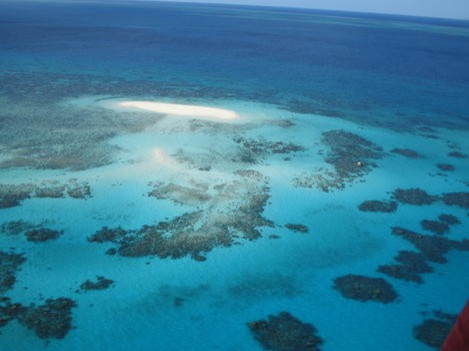Australian Coal and Gas Projects Threaten Great Barrier Reef: UNESCO

Australians are mulling over the findings of a report by the United Nations that commercial mining and gas activity in the country are endangering the Great Barrier Reef, the world largest coral reef.
The report, issued by UNESCO (the United Nations Educational, Scientific and Cultural Organization), warned that the Reef is facing irreversible damage as Australia embarks on a multibillion-dollar expansion of its booming natural gas and mining sectors by building more seaports and other infrastructure.
The rapid increase of coastal developments, including ports infrastructure is of significant concern, UNESCO said. The property further lacks an overall plan for the future sustainable development of the reef.
Rising demand from Asian customers has led to the funneling of up to $435 billion in investments into Australia’s coffers. UNESCO noted that in the past five years alone a total of 108 development projects have commenced near the Reef, principally related to coal and liquefied natural gas.
UNESCO added: Considering the high rate of approvals over the past 12 years, this unprecedented scale of development affecting or potentially affecting the property poses serious concerns over its long-term conservation.”
UNESCO also said that, given the decline in water equality that would arise from excessive development, as well as ongoing climate change, it is essential to reduce development and other pressures as much as possible to enable an increase in the Reef's resilience.”
The 1,500-mile-long Reef, off the coast of Queensland, was placed on UNESCO’s World Heritage List in 1981.
The Australian Conservation Foundation endorsed UNESCO’s findings and called for a suspension of new port projects pending the outcome of an environmental impact assessment.
An official of Greenpeace condemned further development near the Reef.
“There are 35 major development applications seeking approval within the next 18 months that would impact on the Reef... Thankfully UNESCO has recognized the scale of the threat and is calling for urgent action,” said Ben Pearson of Greenpeace.
“We may as well kiss the Reef goodbye if we sign off on even half of six-fold expansion of coal port capacity planned in the World Heritage Area.”
Another environmental campaigner, Paul Oosting of GetUp, told Australian media: ‘‘This report by UNESCO clearly shows the reef is at risk. UNESCO knows it. The Australian people know it. And now it is time for the federal and state governments to do something about these very real concerns.’’
Tony Burke, the Minister for the environment, said he was not surprised by the report and assured that the federal and Queensland state governments will conduct a comprehensive study of the Reef.
However, not everyone in Australia is happy with the UNESCO report.
Campbell Newman, the conservative premier of Queensland, blasted the UNESCO report and ruled out any reviews of future infrastructure projects in the area.
The arguments from some of the left-wing green groups are frankly spurious, he said.
If we listen to their arguments then we would probably stop increases in international air travel because if you follow their arguments the more planes in the air the more crashes you're going to have, and that clearly isn't the case, so we need to be sensible about these things.
He added: We will protect the environment, but we are not going to see the economic future of Queensland shut down. We are in the coal business. If you want decent hospitals, schools and police on the beat, we all need to understand that.’’
© Copyright Thomson Reuters {{Year}}. All rights reserved.





















